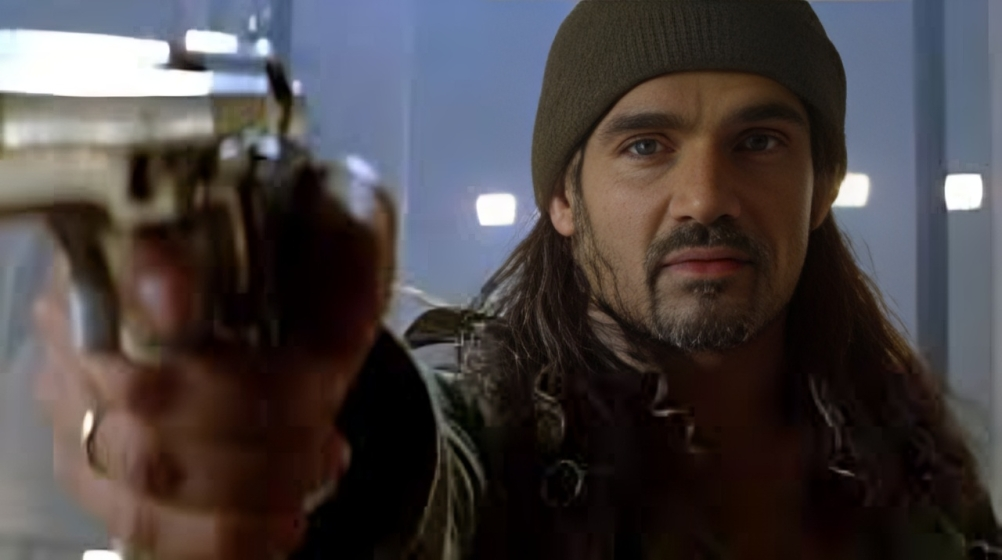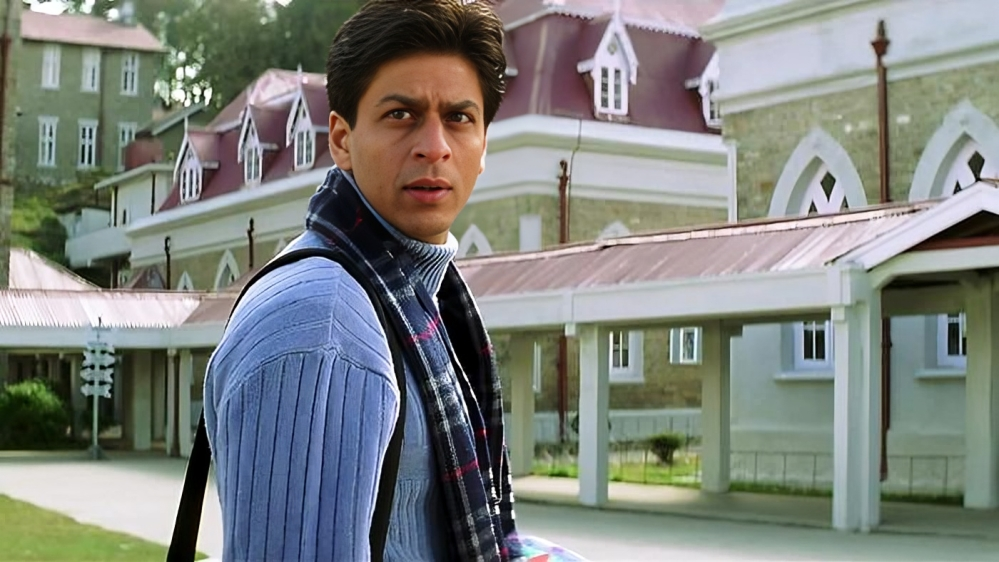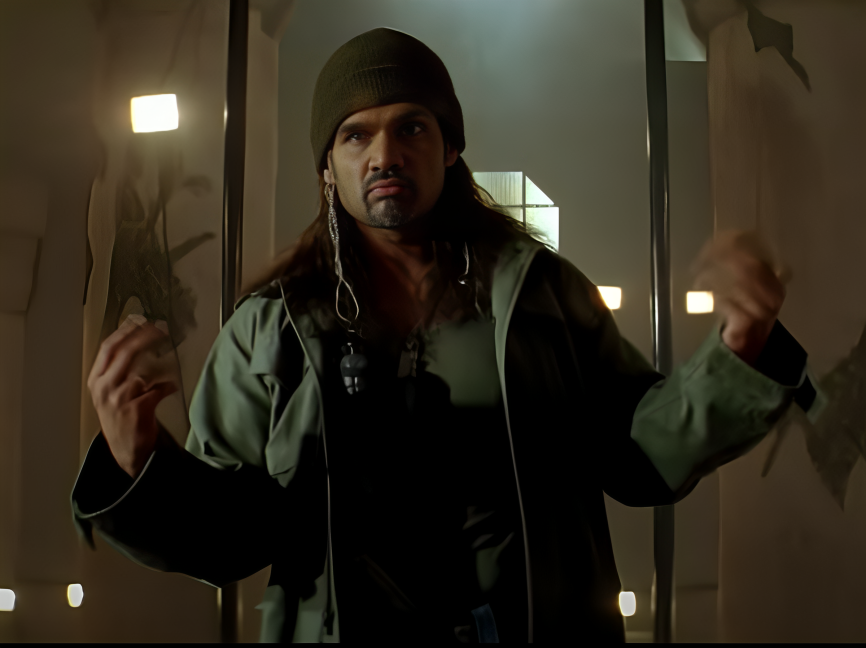20 years of 'Main Hoon Na:' When India wasn't afraid of 'milaap' with Pakistan
Two decades down the line, film reminds one of the era that was
KARACHI:The lens of nostalgia is often one that is accompanied by its fair share of heartbreak. The rose-coloured glasses one puts on to glance back in time overlook all complaints one may have had, reminding only of a simpler, sweeter era for which one's heart begins to yearn.
As the turning tide sees a right-wing propaganda-driven Bollywood succumb to a growing, constantly fed anti-Pakistan fable, one is propelled back to when Indian cinema had some modicum of respect for its Islamic-majority neighbour. Twenty years down the line, Main Hoon Na is the perfect example of one such narrative, that would, perhaps, struggle to find acceptance amidst calls for inevitable bans in today's India.
Project Milaap

Synonymous now with a meme which is utilised to talk about a distant pipe dream that is in a hurry to scoot further away each day, Farah Khan, in her trademark manner, combated the extremely sensitive theme of India-Pakistan relations. Much to the surprise of those who have grown up consuming modern-day Indian cinema, Main Hoon Na was unflinching in its quest to unite the two nations, even if India had to extend a hand of friendship first - an unthinkable move in our present.
The politics of the film was surprisingly neutral, but also exceedingly vital, both on and off-screen. Pakistan was not the villain, and India was not the hero. A female filmmaker of the Islamic faith helmed the project with grit and humour, and a Muslim lead was chosen to essay the role of Ram. Truly, Bollywood was made of finer stuff back in the day.
The Khan factor

As annoyingly self-righteous and pro-military as he was, Shah Rukh Khan's Major Ram Prasad Sharma was the kind of protagonist who made you believe in a better world. True to the title of the film, his companionship was steadfast and his love was embellished with unwavering loyalty. It is hard to imagine any other character pulling off the at-times-quirky, at-times-serious, yet always endearing role, for Shah Rukh essayed it to perfection.
Major Ram was also in line with the characters audiences were attuned to Shah Rukh playing at the time. More often than not, Shah Rukh took up the role of the likeable hero who had a bit of an edge to him. That entire era of his roles was, in many ways, vastly different to the roles he took up later on. It is thus that it becomes easier to look back to the film with a hint of tenderness, remembering the Shah Rukh that once ruled hearts in romantic avatars.
The villain

One of the most iconic cinematic sequences is when Major Ram comes home to tell his half-brother and stepmother the truth about his lineage. However, the two sit with crestfallen expressions on their faces. Ram paces forward, bridging the gap to make his revelation. "Ram, you didn't tell me you're Shekhar Prasad Sharma's son," echoes a voice, as the camera reveals Suniel Shetty's Raghavan seated on a large sofa, invisible till absolutely necessary. Raghavan's personal soundtrack, a brilliant cacophony of in-your-face sound, plays upon the revelation as Ram and the others are frozen in pregnant silence.
Personal preferences reign supreme while making such judgments, but for many, Raghavan continues to be an iconic villain. On paper, the ex-army officer, clad in green, wished to stop Project Milaap at all costs to avenge his son's death. Upon further analysis, one can see how he was, perhaps, an all-too-clever jab at the internal politics of India, where threats to the country may persist on the border, but the real threat is from elements that never wish to see a united subcontinent again due to personal vendettas.
A utopian feel
1714552520-4/download-(1)1714552520-4.png)
The narrative unfolds in Darjeeling, where a college becomes the primary setting for the plot. With breathtaking views that feel larger-than-life, one feels lured into a false sense of security whilst navigating through the lives of the students at St Paul's College. This sentiment is often disrupted by the starkly different setting of Raghavan's lair, which heightens anticipation. The perfect utopia of Major Ram's new world is at stake as he combats reconciliation on multiple fronts, a microcosm for the larger "milaap" at hand.
The characters in this universe have their own welcome quirks. They're over-the-top and, at times, campy, but it would not be a Farah Khan film if they weren't. It's almost as if the filmmaker wanted to create a perfect world and offer it to her audience, igniting the fire of unity by saying, "This is how great it could be if we tried."
As the film celebrates two decades of excellence, one can only thank the cast and crew for this memorable piece of art. To say that Main Hoon Na now doubles as a relic of a fonder past would not be too far from the truth. After all, paying homage to the cinematic offering comes with the all-too-real realisation of the fact that the world it created now lies far away from our collective grasp.
Have something to add? Share it in the comments

1714552519-0/mainhoonna-(1)1714552519-0.webp)
COMMENTS
Comments are moderated and generally will be posted if they are on-topic and not abusive.
For more information, please see our Comments FAQ